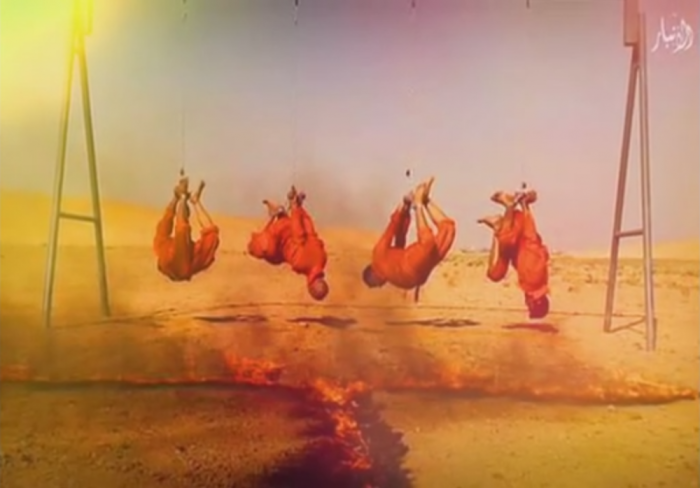ISIS Burns 3 Women Alive for Refusing to Slaughter Innocent Civilians

Despite being pushed out of most of Mosul by Iraqi-led coalition forces, the Islamic State terrorist organization is still killing people in the most heinous ways and it has reportedly burned three women alive who refused to kill other civilians.
According to Iraqi News, eyewitnesses have said that IS (also known as ISIS, ISIL and Deash) burned alive three women who refused to "slaughter" fellow Mosul civilians.
The website reports that the witnesses told the Iraq-based SHAFAQ News that the militant group, which took over territories in Iraq and Syria in 2014, had sentenced a group of residents who were caught trying to flee from the Wadi Akab area west of Mosul to death.
Unlike other reports in which Iraqis have been burned alive and executed for fleeing the group's territory, this time the militants tasked the three aforementioned women with the job of executing those charged with fleeing the group's so-called caliphate.
The sources explained that when the women refused to do the militants heinous dirty work, all three of them were burned alive.
News of the women's execution comes as IS has steadily lost much of its territory in Mosul, once its largest stronghold in Iraq, over the last several months since the Iraqi-led coalition began its offensive to liberate the city from the jihadi death cult last fall.
According to the United Nations High Commissioner for Refugees, "the worst is yet to come" as the coalition braces for its final push to completely liberate Mosul from the terrorists.
The U.N. refugee agency estimates that about 400,000 residents remain trapped in Mosul's Old City, while as many as 600,000 remain trapped in Western Mosul.
"The worst is yet to come because 400,000 people trapped in the Old City in that situation of panic and penury may inevitably lead to the cork-popping somewhere, sometime, presenting us with a fresh outflow of large-scale proportions," Bruno Geddo, a UNHCR representative in Iraq, was quoted as saying during a news briefing.
Geddo added that as many as 157,000 people in Mosul have reached the reception and transit center outside of Mosul.
"They are desperate for food. They are panicked," Geddo added.
Geddo highlighted the struggles that people in what used to be Iraq's second largest city face without power, electricity and food.
"People have started to burn furniture, old clothes, plastic, anything they can burn to keep warm at night, because it is still raining heavily and the temperatures at night in particular drop significantly," Geddo said.
"The more you go without food, the more you become panicked and the more you want to run away," he added. "At the same time, [the outflow] is increasing because the security forces are advancing and therefore more people are in a position to run away where the risk is likely more mitigated."
Geddo also described the various ways people trapped in Mosul try to escape the city without being spotted by IS.
"We also heard stories of people running away under the cover of early morning fog, running away at night, of trying to run away at prayer time when the vigilance at ISIS checkpoints is lower," Geddo explained.




























